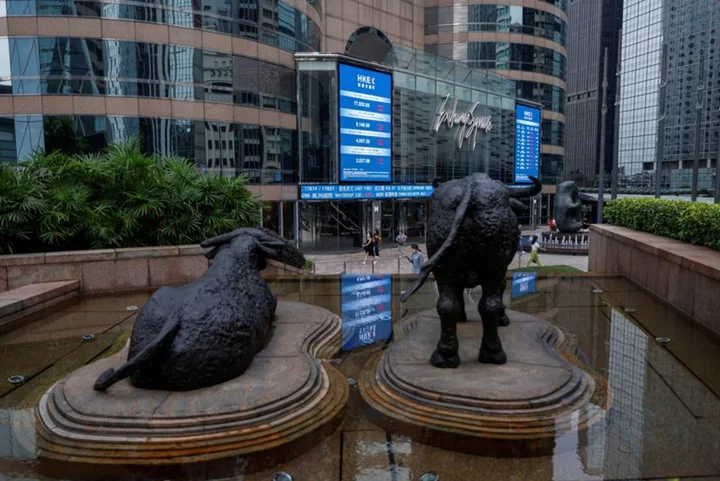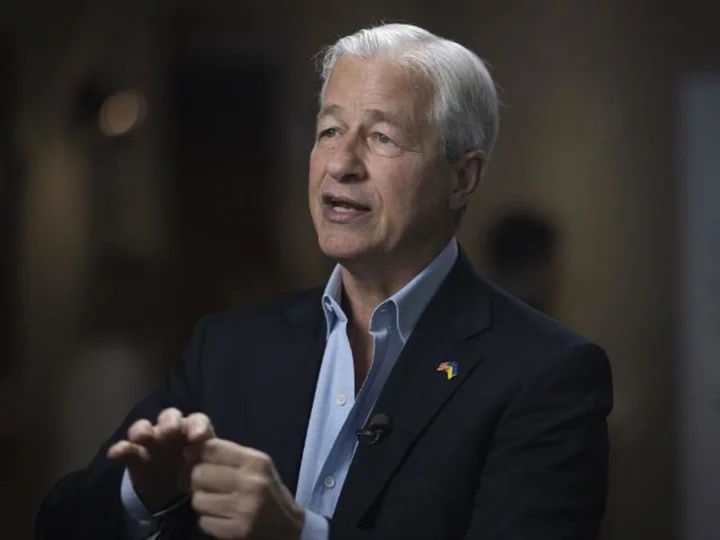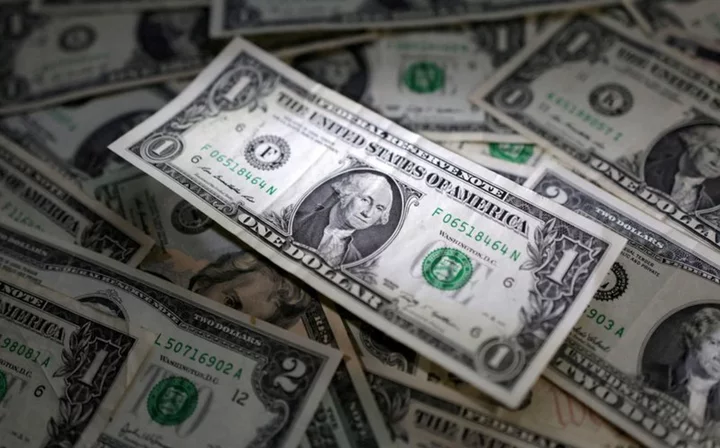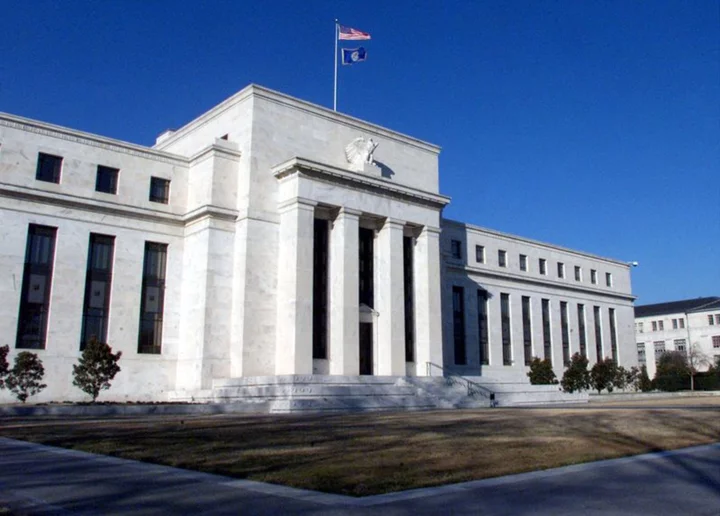A look at the day ahead in U.S. and global markets from Naomi Rovnick
Risk appetite has perked up on global markets thanks to optimism that U.S. Democrats and Republicans are nearing a deal to raise the debt ceiling and avoid an economically catastrophic default.
European and Asian shares rose on Thursday, the dollar held near a seven-week peak against a basket of major currencies and Wall Street stock futures are hinting at a steady open after the S&P 500 index gained about 1.2% on Wednesday.
But while a debt ceiling reprieve could boost markets in coming days, the backdrop of a lacklustre global economy is unchanged, with its twin engines, China and the United States, sputtering.
A dose of growth from China would help long-term risk appetite, but predictions of the world's second largest economy leaping out of the straitjacket of COVID-19 restrictions are proving wide of the mark.
The Chinese renminbi has crossed 7 per dollar, down 1.4% this year, following underwhelming industrial production and retail sales reports and slowing home price gains, all despite property stimulus policies and the release of pent-up demand.
Citi's China economic surprise index is at its lowest since January, a further sign that the growth outlook has weakened.
U.S. corporate earnings meanwhile are painting a grim picture of consumer caution as the lagged effect of interest rate hikes meets above-target inflation.
Big box retailer Target on Wednesday signaled a bleak second quarter as customers steer away from spending on non-essential electronics and home goods because of high prices, a day after Home Depot cut annual sales estimates.
Walmart, which may be on a stronger footing because of its focus on low-price basics, posts its own update later in the day.
The S&P 500 is trading at a rich 18 times forecast earnings, buoyed by the tech mega-stocks that dominate the index. Apple's market capitalization exceeds that of the small-cap Russell 2000 index, and the tech-heavy Nasdaq 100 is up 24% this year.
Tech has boomed on predictions the U.S. Federal Reserve will start cutting rates from July, increasing appetite for rate-sensitive growth companies whose valuations are flattered when money gets cheaper. Further out-performance depends on markets being right about the Fed's willingness to notch interest rates lower from July.
A plethora of Fed speakers argued this week, however, for keeping monetary policy tight while inflation remains high.
Developments that could affect markets on Thursday:
* Economic events: U.S. initial jobless claims, U.S. existing home sales, Philly Fed business index.
* Central bank speakers: Fed governor Philip Jefferson, Fed vice chair for supervision Michael Barr.
* Earnings: Walmart, Alibaba, Applied Materials.
(Reporting by Naomi Rovnick; Editing by Emelia Sithole-Matarise)









